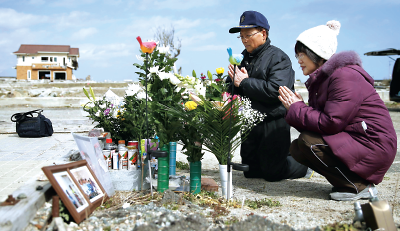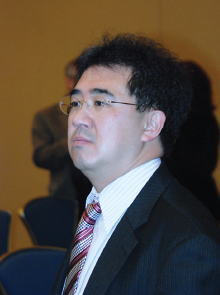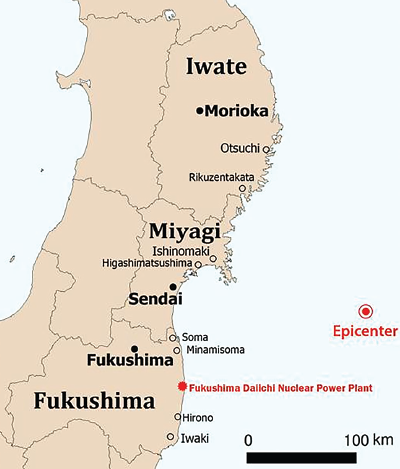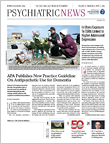The earthquakes that hit the Japanese island of Kyushu in April were a bitter reprise of the magnitude 9.0 quake that struck March 11, 2011, initiating a tsunami that tore apart towns and leading to subsequent explosions at three nuclear power reactors at Fukushima. Five years later, social disruption and consequent psychological stresses remain realities for many survivors.
“People are resilient,” said Jun Shigemura, M.D., Ph.D., of the Department of Psychiatry at the National Defense Medical College in Tokorozawa. However, that doesn’t mean that many do not still need care, he added in an email interview with Psychiatric News.
“As the years have passed, the rates of distressed residents decreased, but the population became polarized,” he said. “There are those who recovered and those who haven’t, and this gap tends to get bigger and bigger.”
Shigemura continued, “At the time of the earthquake, Japan did not have an official postdisaster dispatch system for mental health professionals. However, right after the disaster, prefectural mental health centers and three local medical schools took crucial roles in coordinating non-local psychiatrists and other mental health professionals offering to provide support in the affected area.”
A year later, each of the three prefectures (the equivalent of a U.S. state) that suffered the brunt of the damage (Fukushima, Miyagi, and Iwate) established a multidisciplinary Center for Disaster Mental Health, staffed with psychiatrists, psychologists, social workers, and nurses. The medical schools set up departments of disaster psychiatry, and each prefecture organized teams to track long-term physical and mental health outcomes of survivors.
“A recent government report showed higher psychological distress rates for residents of Miyagi and Iwate prefectures, an increase of alcohol misuse in Iwate, and associations with lowered community bonding and adverse mental health compared with the general population,” said Shigemura. Fukushima prefecture also showed decreasing, yet still high rates of psychological distress and vulnerabilities among women, he said.
The massive and continuing displacement of people from their homes also has created widespread distress. A total of 171,000 people from the affected areas still have not been able to return home, either because of damage to buildings or fear of radiation aftereffects.
“Any evacuation process is a community breakup process,” said Shigemura. “Predisaster communities were dispersed to various temporary housing, and mental health workers have worked very hard to reconstruct those communities. However, it is now time for them to move to government-provided permanent housing, and this means yet another community breakup. Many evacuees choose not to move into permanent housing and seek to find their own homes instead.”
Radiation contamination around the Fukushima nuclear plant adds another layer of concern for residents evacuated from that area.
“Fukushima’s radiation contamination level is way lower than that of Chernobyl, and no one died owing to acute radiation syndrome,” said Shigemura. “Still, people’s fear and health concerns were enormous. Risk communication mishaps led to public criticism and mistrust of the authorities, the electric company, and scientists. People became unsure of what to eat, where to take shelter, and who to believe. Some people tend to attribute ongoing physical symptoms to their radiation exposure regardless of their actual dose.”
Fukushima power plant workers showed high levels of mental distress and social rejection, in part because the electric company was blamed for its mismanagement of the disaster.
Victims are stigmatized, as well, he said, “a reminder of what had happened to Hiroshima and Nagasaki survivors—they were called Hibakusha and were discriminated against.”
The effects of the triple tragedy five years ago can be expected to linger indefinitely, he said.
“Japanese society will have to deal with postdisaster mental health issues as a public health topic for decades to come,” said Shigemura. “Long-term, multidisciplinary approaches will be needed among psychiatrists to provide comprehensive solutions, and disaster preparedness and education will be crucial to enhance the level of mental health care in future disasters.” ■
Early coverage of the effects of the earthquake, tsunami, and nuclear disaster in Japan can be accessed
here and
here.



